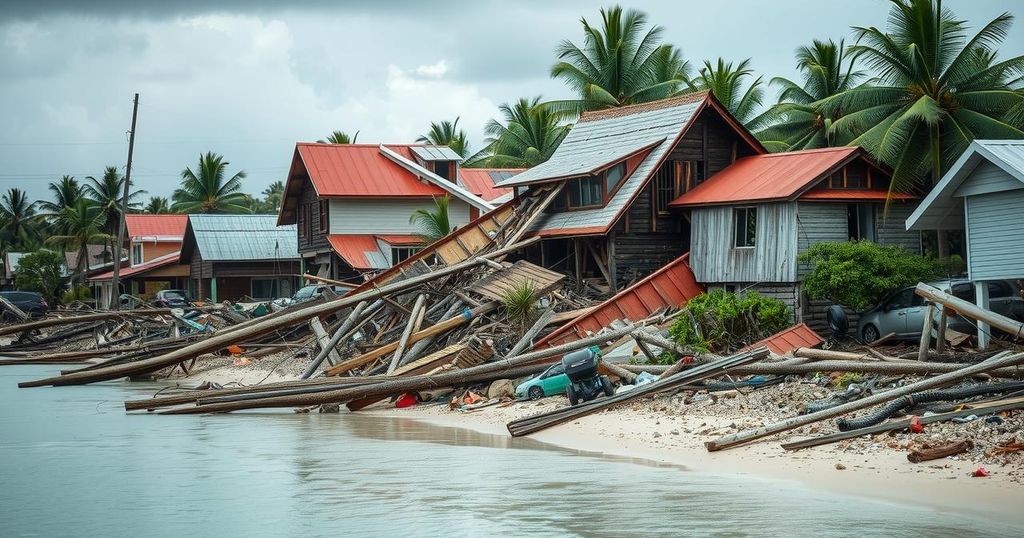Cyclone Chido has caused extensive damage in Mayotte, resulting in at least 11 deaths and numerous injuries. Efforts to assess the full impact are ongoing, as the cyclone continues its trajectory towards Mozambique, threatening further devastation. Authorities are mobilizing emergency responses while highlighting the urgent need for climate action and support for vulnerable regions affected by such disasters.
The French territory of Mayotte has been severely impacted by Cyclone Chido, with at least 11 fatalities reported and many residents injured. As the cyclone swept through the region, it left behind extensive destruction, particularly in Mayotte, which faced winds exceeding 220 kph (136 mph). In addition to loss of life, more than 246 individuals were reported injured, with numerous critical cases in local hospitals. Emergency responses are underway, as French authorities struggle to assess the full extent of the hurricane’s impact amidst the chaos. Cyclone Chido has since progressed towards Mozambique, leading to fears of further devastation in that region as well.
The unprecedented intensity of Cyclone Chido has raised alarms across the affected areas. French Interior Minister Bruno Retailleau expressed deep concern over the potential rise in death toll in Mayotte, describing the cyclone as the worst to hit the area in nearly a century. A lack of resilient infrastructure exacerbated the conditions, particularly for marginalized populations living in precarious housing who are exceptionally vulnerable during such disasters.
As emergency personnel mobilized, additional resources were dispatched from France and Reunion to assist the affected population. Government agencies and aid organizations, including the United Nations Children’s Fund (UNICEF), are actively working to provide emergency relief as they confront the devastation of homes, schools, and health facilities, particularly in the Cabo Delgado province of Mozambique, where an estimated 2.5 million people could be affected.
The situation in Mayotte highlights ongoing vulnerabilities resulting from climate change, as cyclones of increasing intensity have been observed in the region. These weather events not only threaten lives and infrastructure but also contribute to the cyclical humanitarian crises faced by economically disadvantaged nations in Southern Africa. Richer nations are being urged to support these vulnerable populations in facing climate-related disasters, as they disproportionately suffer from the impacts of global warming despite contributing very little to its causes.
Mayotte, a French overseas territory located in the Indian Ocean, is particularly susceptible to cyclones due to its geographic positioning. The region experiences cyclone season from December to March, with climate change contributing to the increasing severity and frequency of such weather events. Cyclone Chido’s recent impact, resulting in casualties and significant infrastructure damage, underscores the urgent need for humanitarian response and highlights the broader implications of climate-related disasters on vulnerable communities. Historically, cyclones have led to severe humanitarian crises in Southern Africa, further straining the resources of affected nations such as Mozambique, Malawi, and Zimbabwe, which are still recovering from previous disasters.
In summary, Cyclone Chido has inflicted devastating consequences on Mayotte and its surrounding areas, leading to fatalities, injuries, and widespread infrastructure damage. As emergency responses escalate to address the immediate crisis, the situation serves as a stark reminder of the vulnerabilities faced by regions susceptible to climate-induced disasters. The international community’s involvement and support are critical to aid recovery efforts and address the underlying challenges posed by climate change.
Original Source: www.seattletimes.com






